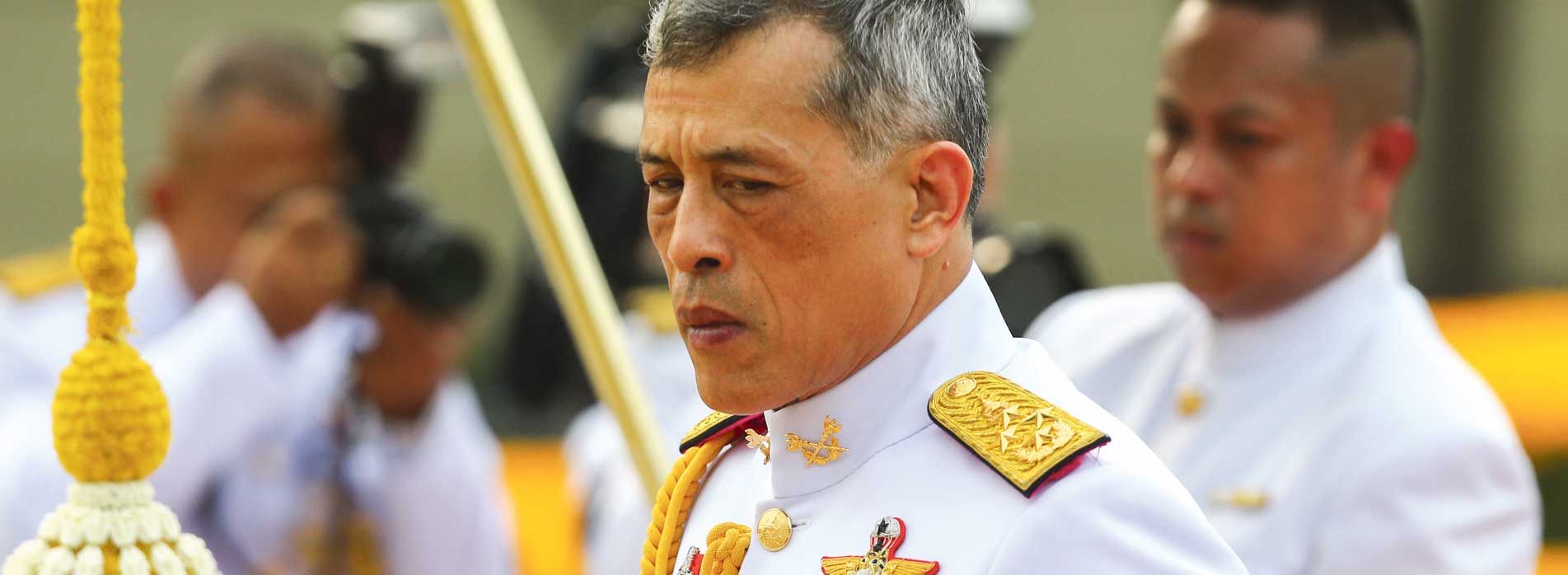Thailand’s King Maha Vajiralongkorn Bodindradebayavarangkun’s coronation on May 4 made him the 10th king of the country’s Chakri Dynasty, or Rama X. Elaborate rituals emphasised continuity with the new king’s nine predecessors, not least the military commander who founded the dynasty 15 years after the Burmese sacked the Siamese capital of Ayutthaya in 1767. Like Rama I, Vajiralongkorn regards himself as a military man. He studied at Australia’s Royal Military College, and holds high ranks in the Thai army, navy and air force. The new queen, a former flight attendant whom Vajiralongkorn married three days before his coronation, holds the military rank of general. The coronation took place while Thailand was under military dictatorship — the consequence of a 2014 coup widely understood as a means to ensure a smooth transition from King Bhumibol Adulyadej to his son, Vajiralongkorn. Continuity can be illusory. Discontinuity, in fact, marks relations between Thailand’s monarchy and military. In 1912, military officers unsuccessfully plotted to overthrow King Vajiravudh, or Rama VI. Army and naval officers played leading roles in the 1932 coup that replaced absolute monarchy with a constitutional regime. For much of the following 25 years, military-dominated administrations marginalised the monarchy. It was only in the late 1950s, when Cold War tensions and a drive for economic development created an imperative for national integration, that the military and the monarchy forged what became a long, effective partnership. Thailand weathered its communist insurgency. The unifying power of Bhumibol proved strong and lasting. Through the 1980s and 1990s, Thailand evolved toward parliamentary democracy. And the military’s change in posture, from rival of the monarchy to its protector, gave it the pretext to intervene in politics, submitting the country to repeated periods of military rule. In March, Thailand went to the polls to elect a new parliament. Just days after Vajiralongkorn’s coronation, the election commission announced official results. The upstart Future Forward Party, led by the young automobile-parts tycoon Thanathorn Juangroongruangkit, finished third. Central to this performance was the party’s call for the abolition of conscription and for the reform and depoliticisation of Thailand’s bloated, coup-prone armed forces. Even before the official results were announced, authorities charged Thanathorn with sedition in connection with a 2015 demonstration against the dictatorship. Complaints to the election commission accused him and a number of his party candidates of holding shares in media firms while running for parliament, a violation of election law. These complaints can lead to disqualification from politics and even imprisonment. Press coverage of the election has focused on the junta’s determination to perpetuate its domination of politics. That focus is misplaced. Seen in the context of Vajiralongkorn’s coronation, the pressure on the Future Forward suggests that something more fundamental is at stake. Electoral support for Future Forward represents more than just a challenge to the junta. It sends a strong signal on the palace’s partnership with the military and suggests that young voters regard an arrogant military as an unsuitable partner for the monarchy. Vajiralongkorn’s advisers will do well to heed to these convictions, as they seek to renew the role of the monarchy. The challenges that face Thailand today are different from those of communist insurgency and the need to integrate remote areas of the kingdom. Its society is aging. Two decades from now, more than a quarter of its population will be 65 or older. Its working-age population will shrink by a quarter. With an under-performing education sector and fears among economists that the country will fall into a “middle-income trap”, a king taking his crown at 66 is well positioned to champion solutions to such issues. In administrative terms, Thailand remains overcentralised. One impediment to decentralisation, including the replacement of provincial governors appointed from Bangkok with wholly elected regional governments, is that the system is a legacy of King Chulalongkorn, or Rama V, with which few dare to tamper. Rama X will, however, have the legitimacy to advocate adjustments, which might resolve the long-running crisis in the Malay-Muslim-majority provinces of Deep South, where military solutions have failed. Relations with China represent a third issue that deserves Vajiralongkorn attention. Thailand’s intensive contact with that country poses generally unrecognised challenges to national unity. Reinforcing such unity is the role of the constitutional monarchies the world over. Much of this may sound prosaic, but it will be hard work, in which the military has no logical role to play. Tackling these issues will allow the monarchy to distance itself from the soldiers before their continued partnership becomes a liability, even a threat to legitimacy. The path of least resistance does not lie in the direction suggested here. The monarchy-military partnership has come to feel natural to many in Thailand. Pushing the army away and siding with forces backing its reform will not be without risk. But, the prospect of a Thai republic remains too alarming for many in the country to countenance. (Michael J Montesano is co-ordinator, Thailand Studies Programme, ISEAS-Yusof Ishak Institute, Singapore)
Young Thai voters seem to view military as an unsuitable partner for the monarchy
Advertisement
End of Article


)

)
)
)
)
)
)
)
)



